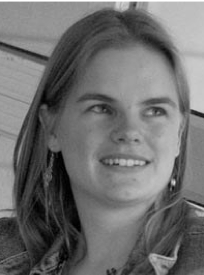Biography
I am interested in the evolution of the malaria parasite, Plasmodium falciparum. Malaria infects several hundred million people worldwide each year, and kills one million. About 80% of all deaths caused by malaria are of children under the age of five. Many of the key anti-malarial drugs are now ineffective due to the spread of resistance.
The malaria parasite is a single celled eukaryotic pathogen. It contains a mitochondrion, as well as a remnant chloroplast called the apicoplast. The apicoplast is no longer able to carry out photosynthesis, yet is essential for the parasite's survival. Both the mitochondrion and the apicoplast have many prokaryote-like characteristics, due to their origins as endosymbiotic bacteria, enslaved about 1 1/2 billion years ago. Understanding the function of these essential organelles is key to developing new anti-malarial drugs.
My main research project examines the transcription of the remnant chloroplast. Much is known about the transcription of chloroplast genes in plants and algae, yet very little is known about the transcription in Plasmodium. We have shown that genes are transcribed polycistronically, and that there is significant antisense transcription as well.
I am also interested in other questions in evolution, and am working with several archaeologists. We have a number of projects examining the domestication of the horse, looking at the origins of the thoroughbred breed and are also solving mysteries in thoroughbred racing, such as is Eclipse, the fastest horse ever, really Eclipse? The phylogenetic techniques we use in our work on the malaria parasite are the same as those used to solve these horse problems.


